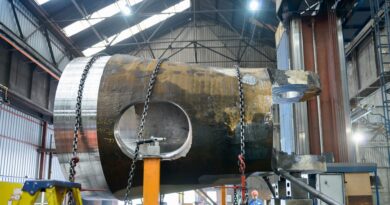Gas Water Heaters: A Comprehensive Guide to Performance and Efficiency
A gas water heater is one of the most reliable and efficient solutions for providing hot water in homes, RVs, and outdoor settings. Whether for daily household use, off-grid living, or camping, gas-powered water heaters offer an energy-efficient alternative to electric models. They provide a consistent and rapid supply of hot water, making them a preferred choice for many homeowners and outdoor enthusiasts.
For those looking for a high-performance gas water heater, tankless models have become increasingly popular. These heaters offer an on-demand hot water supply without the need for a storage tank, making them ideal for saving space and energy. Understanding how gas water heaters work, their benefits, and maintenance requirements can help you choose the best option for your needs.
How Gas Water Heaters Work
Gas water heaters use natural gas or propane to heat water through a burner located at the bottom of the tank or within a heat exchanger in tankless models. The basic process includes:
- Ignition – A pilot light or electronic ignition system starts the heating process.
- Water Heating – The burner heats the water, which then rises and is distributed through plumbing.
- Temperature Control – A thermostat regulates the water temperature to prevent overheating.
- Ventilation – Gas combustion produces fumes, which are vented outside through a flue or direct vent system.
Types of Gas Water Heaters
1. Tank Water Heaters
Traditional gas water heaters use a storage tank to heat and store water until it is needed. These models are available in different sizes, typically ranging from 30 to 80 gallons.
Pros:
- Provides a steady supply of hot water
- Lower upfront cost compared to tankless models
- Suitable for high-demand households
Cons:
- Takes up more space
- Requires time to reheat once the tank is emptied
- Higher energy consumption due to standby heat loss
2. Tankless (On-Demand) Water Heaters
A tankless gas water heater heats water only when needed, eliminating the need for a storage tank. This system is highly efficient and provides unlimited hot water as long as the demand does not exceed the unit’s capacity.
Pros:
- Energy-efficient with no standby heat loss
- Compact design saves space
- Provides an endless supply of hot water
Cons:
- Higher initial cost
- May require professional installation and ventilation upgrades
- Limited flow rate if multiple fixtures are used simultaneously
3. Condensing Gas Water Heaters
These models use waste heat from exhaust gases to preheat incoming cold water, improving energy efficiency. They are commonly found in high-efficiency homes.
Pros:
- Extremely energy-efficient
- Reduces gas consumption
- Lower operating costs over time
Cons:
- More expensive than conventional models
- Requires a specialized venting system
Benefits of Gas Water Heaters
1. Faster Heating Time
Gas water heaters heat water much faster than electric models, ensuring a quick and consistent hot water supply.
2. Lower Operating Costs
Since natural gas and propane are often more affordable than electricity, operating a gas water heater can save money over time.
3. Works During Power Outages
Unlike electric water heaters, gas models continue working during power outages, making them ideal for areas with unreliable electricity.
4. High Energy Efficiency
Tankless and condensing gas water heaters have high energy efficiency ratings, reducing overall gas consumption and lowering utility bills.
5. Ideal for Large Families and High Water Demand
Homes with multiple bathrooms or high hot water usage benefit from the faster recovery time and continuous supply of hot water provided by gas water heaters.
Choosing the Right Gas Water Heater
1. Determine Your Hot Water Needs
Consider the number of people in your household and the peak hot water demand. A larger family may require a higher-capacity tank or a powerful tankless unit.
2. Check Energy Efficiency Ratings
Look for models with high energy factor (EF) or uniform energy factor (UEF) ratings to maximize efficiency and savings.
3. Consider Space Availability
Tank water heaters require more space, while tankless models are compact and can be mounted on walls.
4. Decide Between Natural Gas and Propane
Natural gas is typically available in urban areas, while propane is better suited for rural and off-grid locations.
5. Look for Safety Features
Ensure the unit has safety features such as automatic shut-off, temperature controls, and proper ventilation to prevent gas leaks and overheating.
Installation and Maintenance Tips
1. Proper Ventilation
Gas water heaters require adequate ventilation to expel combustion gases safely. Choose between direct vent, power vent, or conventional flue venting based on your home’s setup.
2. Flush the System Regularly
Sediment buildup can reduce efficiency and damage the heater. Flush the system annually to remove mineral deposits.
3. Inspect the Anode Rod
For tank models, the anode rod prevents rusting. Check and replace it every few years to extend the unit’s lifespan.
4. Test the Pressure Relief Valve
The pressure relief valve prevents excessive pressure buildup. Test it periodically to ensure proper functioning.
5. Schedule Professional Maintenance
Have a licensed technician inspect your gas water heater annually to ensure safe operation and efficiency.
Common Gas Water Heater Issues and Troubleshooting
1. No Hot Water
- Check the gas supply and ensure the pilot light is on.
- Inspect the thermostat settings.
2. Water Not Hot Enough
- Adjust the thermostat to a higher setting.
- Flush the system to remove sediment buildup.
3. Water Leaks
- Inspect connections and tighten any loose fittings.
- Check the tank for corrosion or cracks.
4. Strange Noises
- Rumbling or popping sounds may indicate sediment buildup.
- Flush the system to remove deposits.
5. Pilot Light Won’t Stay Lit
- Check for drafts affecting the flame.
- Clean the burner and thermocouple.
Conclusion
A gas water heater is a reliable and efficient option for providing hot water in homes, RVs, and outdoor settings. Whether choosing a traditional tank model or a modern tankless system, gas-powered heaters offer faster heating times, lower operating costs, and improved energy efficiency. By selecting the right model and following proper maintenance practices, you can enjoy a steady and cost-effective hot water supply for years to come.




